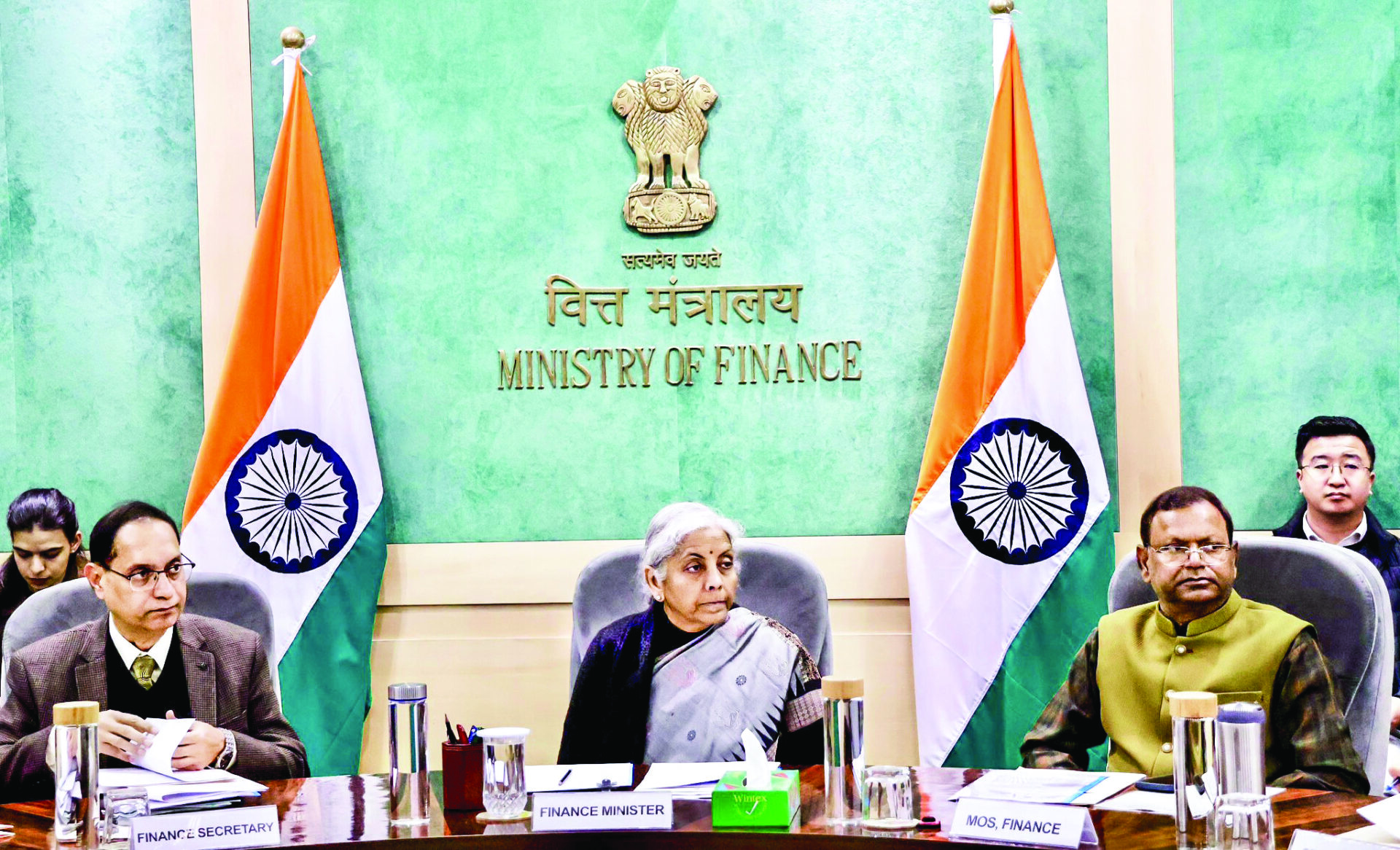Experts call for Union Budget 2025 to reduce GST, boost innovation, and strengthen India’s healthcare infrastructure.
New Delhi: Nirmala Sitharaman, Finance Minister of India, is set to present the Union Budget 2025 on February 1, 2025. Alongside unveiling key economic reforms, the Budget is expected to emphasise significant advancements in the healthcare sector.
According to a report, the Indian pharmaceutical and healthcare industry holds high expectations for the upcoming Budget. The sector is seeking increased government support to enhance infrastructure and promote innovation. Experts have highlighted key priorities, including enhanced tax benefits, increased investments, and a focus on emerging technologies like AI-driven solutions and robotic surgeries, as shared with The Sunday Guardian.
Dr Vikas Agarwal, CEO and Founder of Dentalkart, told the publication that a revision of the current GST structure on healthcare products is necessary, particularly for those taxed at 18%. He emphasised that dental and medical supplies are essential for public health and should not be classified as luxury items. Introducing a uniform GST rate of 5% across all healthcare products would significantly lower costs for both providers and patients, ensuring that essential medical and dental supplies remain affordable and accessible. Dr Agarwal further added that reducing GST on healthcare products is not just an economic reform but a commitment to public welfare. Such a measure would also boost the healthcare sector by fostering innovation, improving service delivery, and enabling healthcare professionals to provide better care.
Dr Purendra Bhasin, Founder and Director of Ratan Jyoti Netralaya, Gwalior, expressed hope that the Union Budget would focus on strengthening healthcare infrastructure, especially in rural areas, and improving access to affordable treatments. He emphasised the need for increased funding for public healthcare, support for R&D in pharmaceuticals, and policies promoting public-private partnerships to enhance service quality.
Dr Bhasin highlighted the importance of reducing GST on essential medical equipment, offering incentives for indigenous production of medical devices, and providing tax benefits for hospitals investing in advanced technologies. He also called for customs duty exemptions on life-saving drugs for conditions like cancer and rare diseases to lower patient costs. Additionally, he stressed the need for a supportive ecosystem for domestic healthcare device manufacturing through tax incentives, industrial parks, and technology transfers to reduce import dependency, foster innovation, and improve access to affordable, high-quality medical devices.
Dr Vikas Mittal, pulmonologist and Director at Wellness Home Clinic and CK Birla Hospital, highlighted India’s prominent role as the third-largest producer of generic medicines and vaccines, while noting that the medical device manufacturing sector is still in its infancy. He emphasized the need for the Union Budget 2025 to allocate significant funds for developing quality hospital infrastructure in urban and rural areas, decentralising healthcare facilities in cities to reduce overcrowding, and improving access to specialised care in rural regions.
Dr Mittal called for measures to boost healthcare device manufacturing, reduce reliance on imports of advanced equipment like MRIs and CT scanners, and expand domestic production of standard and disposable medical devices under a more comprehensive Production Linked Incentive (PLI) scheme. He also urged increased funding for R&D, subsidies for essential medical equipment and cancer vaccines, streamlined regulatory processes, and greater telemedicine support. Additionally, he advocated for reducing customs duties on life-saving drugs to enhance affordability and accessibility for patients.
Similarly, Sharad Jaiswal, Founder and CEO of Purobest, emphasised the need for reducing the 18% GST on nutraceuticals in the Union Budget, as these products are essential for bridging nutritional gaps, promoting overall health, and managing serious conditions like heart disease and cancer.
Lowering the GST would make them more affordable and accessible, aligning with national health priorities. He also highlighted challenges faced by Indian nutraceutical startups like Purobest in selling products internationally due to complex banking procedures and compliance requirements. Simplifying these processes would enable startups to expand globally, attract foreign exchange, and support

